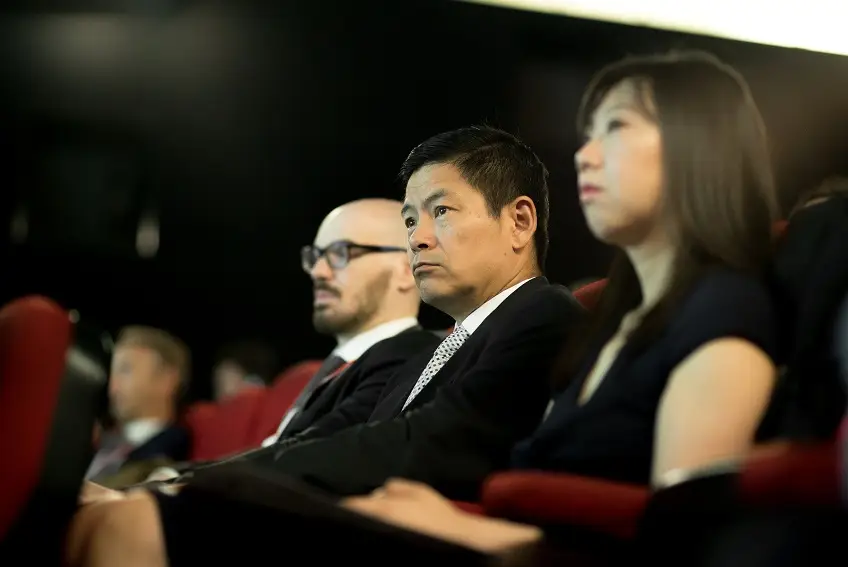
Digital technologies have become the primary means through which societies and economies operate. Different jurisdictions are regulating technologies in different ways, but they all face similar challenges.
RAID does not take sides. It is a platform equally for Europe, the US, China, for technology companies, big and small, and for our common humanity. While differences in socio-cultural and political norms exist and are reflected in regulatory frameworks, these differences are much smaller than the common ground that unites us – and the common challenges we face.
The RAID agenda tackles major global concerns: the size and power of big tech; the growing strength of AI; financial instability; the reach and status of platforms; data protection; and polarisation.
Balancing antitrust initiatives with the interests of the tech sector is a top priority. All regulators and policymakers are trying to balance trade-offs between innovation and more productive economic growth. RAID enables dialogue between representatives of big tech, regulators and start-ups, contributing the development of an environment in which all can thrive together.
As regions take differing approaches to the regulation of AI, dialogue at RAID contributes to greater understanding of the risks and opportunities of this rapidly growing sector. With the publication of the European Commission’s Artificial Intelligence Act, China planning its own AI regulatory system and the US beginning to propose legislation in this area, RAID offers a platform for international alignment on the fundamentals of AI regulation.
The cross-border nature of fintech, the move of big technology companies into payment and other banking services and the prospect of digital currencies all pose a risk to the stability of financial systems. As Europe sets out its regulation on Markets in Crypto Assets (MiCA) and as the US and China’s anti-monopoly activities impact the fintech sector, RAID enables the financial services sector and its regulators to work together.
All jurisdictions are grappling with the common question of how to assess, define and categorise tech platforms. According to Section 230 of the United States Communications Decency Act, tech companies are not liability for content they host – but a review of this is very possible under the Biden administration. The way in which platforms moderate content, and how they communicate this process, has huge implications for society.
The EU’s adoption of GDPR more than three years ago benefited businesses by helping to increase consumer trust, and now China is set to follow suit with its Personal Information Protection Law. The US is yet to establish a centralised legislative approach, but different states and industries are all raising standards, faced with public concerns over their privacy. RAID brings data protection commissioners together to help create a level playing field and establish where legislation needs to develop further.
As much as technology brings us together, and as much as we have in common, there is a risk that technology and its regulation can contribute to polarisation. Instead of highlighting differences and disputes between regions and between the public and private sector, RAID seeks to rebalance the conversation and promote constructive cooperation. Technology transcends borders; regulatory mechanisms must also be able to do the same, which is why RAID focuses on international cooperation to resolve differences and build on shared interests.
Why is RAID well positioned to unite a polarised world?
RAID has been at the frontier of how technology transforms society, business and government in Europe, China and the US since 2017, when RAID (www.raid.tech) was launched by Cavendish Group in partnership with the Fondation Prospective et Innovation.
The first RAID events took place at the Palais du Luxembourg and Centre Pompidou in Paris in 2017 and 2018, co-chaired by Jean-Pierre Raffarin, Chairman, Fondation Prospective et Innovation and Former Prime Minister of France and Wu Lebin, Chairman, Chinese Academy of Science Holdings.
These events brought together cross-sector industry leaders and government officials from China, Europe and the US to express balanced views on the challenges and opportunities of Robotics, AI, IoT & Data.
Since then, the effects of the Covid-19 pandemic have turbocharged the rise and influence of technology and its developers. Harnessing the power of technology in an equitable manner has become an even more critical area of common interest for governments, industry and society, at a time when open, constructive dialogue between regions is under threat. The benefits of developing strong technology regulations together are far greater than the benefits of protectionism and unilateralism, which bring far greater risks.
With this in mind, RAID (Regulation of AI, Internet & Data) 2025 will take place on 29-30 September in Brussels under the theme of Regulating for Tomorrow’s World, with speakers from global governments and regulatory authorities.
We welcome you to join this impartial and independent forum to help unite a polarising world.




